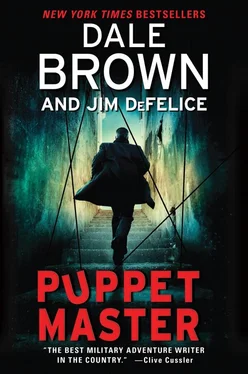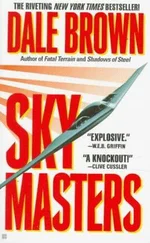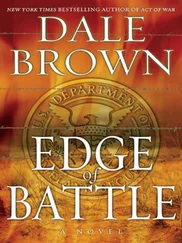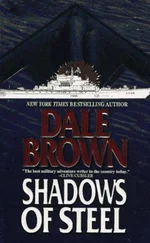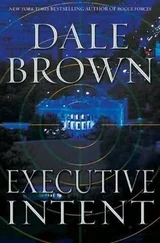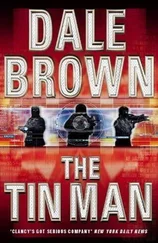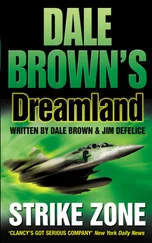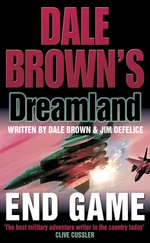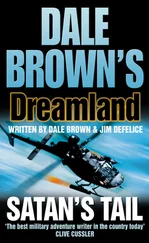It would not have been impossible to follow Tolevi from that point on, but it would not have been easy, and when he emerged from the water a half hour later in the backyard of a Russian pensioner, he was reasonably sure no one had followed him. A half hour on, driving the pensioner’s car — the man had known his father — he set out for Kerch, another port town on the northeast coast.
Some hours later, he arrived in Kerch. After parking near the town center, he walked across the cement cobblestones in front of the Cathedral of Prophet St. John the Baptist, head bowed slightly as he passed, until he reached the nearby beach. There he found a bench in view of the sea and sat, waiting as the sun set behind him.
Shadows danced across him, extending to the sand as the last few tourists walked to the inns and hotels farther up the street. Tolevi remained, staring at the dark line of the jetty on his left, more park than wharf. A single ship was tied up there: a Russian corvette.
“A warm night,” said a voice behind him in Russian.
The heavy Ukrainian accent made it difficult to understand, and it took Tolevi a moment to respond.
“Warm is good,” he replied.
“Can I sit?”
Though he had not yet seen the other man, Tolevi raised his hand, gesturing that he had no problem. The man slipped around the other side of the bench, squatting on the edge of the slats. He was much younger than Tolevi, barely out of his teens, and though his voice was even, he was obviously nervous — he jangled his feet around, kicking up a tiny vortex of sand and dust.
“You’re Russian?” asked the newcomer.
“My mother was. My father Ukrainian.”
“Your Russian is very good.”
“My Ukrainian is better,” said Tolevi, demonstrating. “I was looking for a good place to eat.”
“There are many. You have the numbers?”
They were barely out of the authentication — the switch to Ukrainian had been meant to seal it — and here the boy wanted to be gone. Tolevi considered — was he merely scared, or was he part of a double cross? Tolevi was particularly vulnerable here, without a weapon or backup. It would be nothing for a group of thugs to appear, drag him a few hundred yards, and throw him in the water.
But if it was a trap, why not just shoot him directly and be done with it? Why play games.
To get the account numbers, of course.
“You have the numbers?” asked the boy again.
“I’m hungry,” said Tolevi impulsively.
He got to his feet and began walking. His contact hesitated before trotting after him.
Tolevi stayed near the water, working out how he might proceed. He was sure that he hadn’t been followed, but that was all he could be sure of. It was very possible the young man had been, even if he wasn’t working for the Russians.
So hard to know. In the end, all Tolevi could do was gamble on trust.
But not yet.
He veered right, walking up toward YugNiro, the solid-looking building on Sverdlov Street that housed the oceanography and fisheries institute. Two blocks farther, he found a small café and went inside; the young man followed.
Tolevi had only been to Kerch two or three times over the past few years, and he couldn’t remember being in this particular café. It was nearly deserted — odd, given the hour, though possibly not so strange since the Russian takeover. He asked for a table on the porch. The kid followed.
“I think — do you think this is safe, to spend so much time together?” asked the young man when he sat.
“I wonder if they have beer,” said Tolevi.
They did, and while the choices were limited to Russian, Tolevi managed to find a Knightberg Shisha, a good stout.
The kid said he wasn’t thirsty.
“Nothing then?” Tolevi asked.
He shook his head.
“How are things in the new republic?”
The boy frowned and shook his head.
Fair enough. The less I know about you the better.
“How do you go back?” Tolevi asked. He had only been to the annexed parts of Ukraine twice since the takeover and was genuinely curious.
“Through Russia; it’s easier. I take the ferry. I have an hour.”
“Mmmm…”
The beer came. The rest of the place remained empty.
I don’t trust him, thought Tolevi. But realistically, this does not look like a trap. And I cannot stay here all night.
Still, he hesitated, sipping the beer.
“How old are you?” Tolevi finally asked.
“Old?”
“Your age.”
“I’m nineteen.”
“You go to school?”
“I do many things. I’m not here to play around.”
“Mmmmm.…”
The brief flash of anger reassured Tolevi. He took a long sip of the beer, then slid back in the chair.
“Here are the numbers. You’re ready?”
“Ready.”
“I will not repeat them.”
“I don’t expect you to.”
* * *
The numbers were accounts in two banks to be used by the resistance fighting the Russians and traitors near Donetsk. This was the only way they were transferred — person to person, with nothing in writing. The equivalent of a half million dollars was in one bank, three times that amount in the other.
How much of that would reach the resistance, Tolevi could not know. Nor did he want to. He was somewhat ambiguous about the conflict — he had relatives on both sides, after all. His prime interest was in the money he would receive from the CIA for delivering the information.
* * *
The young man closed his eyes, memorizing the numbers. Then he rose.
“You’ll pay?” he asked Tolevi.
“Always. One way or the other.”
Boston, the same day
Borya pedaled slowly toward the bank, watching the traffic with one eye and the curb with the other. It had been cloudy when she left home, threatening rain, but now the sun was out full blast, warming the air with a promise of spring. Buds were starting to peek out of the dead wood of the trees, and already the morning was warm enough that she didn’t need the sweatshirt she’d bundled herself in. It was so warm, in fact, that she decided to stop and take it off a block from the bank; she rode up onto the sidewalk, hopping off the bike with a quick, practiced motion. The seat and pedals on the Shimano mountain bike were adjusted so her legs were at full extension, and a careless dismount could hurt. She pulled off her sweatshirt and tied it around her waist, smoothing it against her baggy khaki pants.
She’d decided to skip school at the last minute and in fact was still not entirely comfortable with the decision. Her father was away, which made skipping school more problematic, not less. Any call home about her absence would go to voice mail, where she would intercept it and return it, pretending to be her au pair — a college student who was a serious pain before leaving the family employ two years before. The woman who looked in on her in the evenings — never use the term babysitter —was a kindly old dolt who was easy to dodge. But her father had an unfortunate habit of calling the school when he was out of the country, ostensibly checking to see how she was doing; this made skipping more problematic, if not downright dangerous.
Even though he wasn’t Roman Catholic, her father had an unworldly and to Borya’s thinking inexplicable respect for the nuns who ran the school; a cross word from them always brought swift retribution.
Not that he would hit her — she couldn’t remember that he had ever done so, even when she was five or six years old. But his lectures. These were old-school tirades, marathon sessions that varied in volume from hour to hour — and they did last hours. Guilt was a heavy component, as was the sainted memory of her beloved mother, God rest her soul, who would be invoked a minimum of twelve times. Borya hated this mother — not her real mother, whom she had only the vaguest memory of, but the sainted, beloved mother her father presented during these speeches.
Читать дальше
